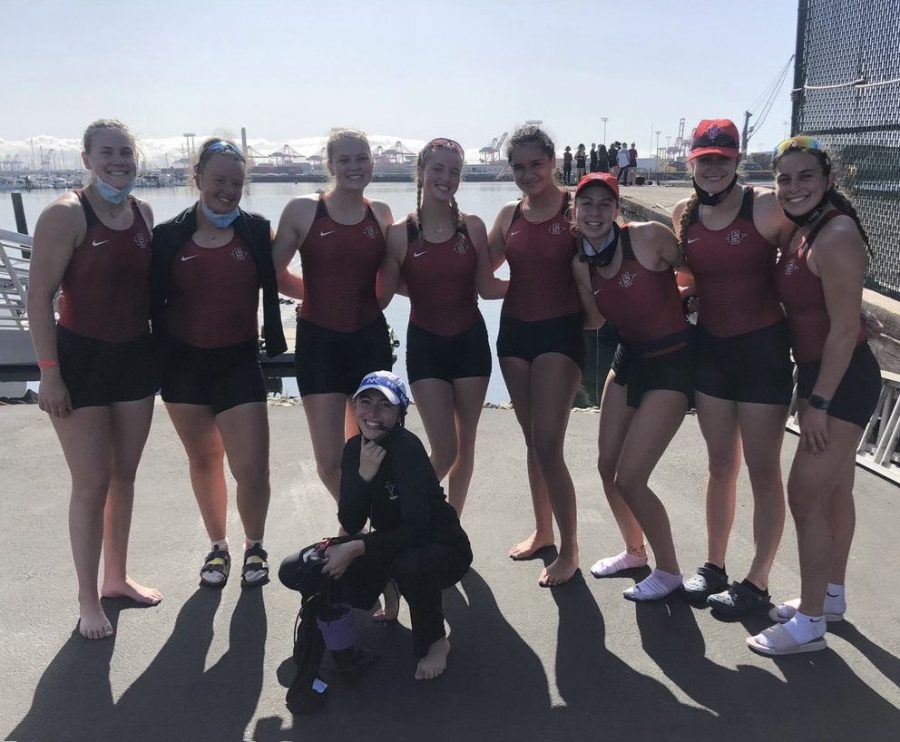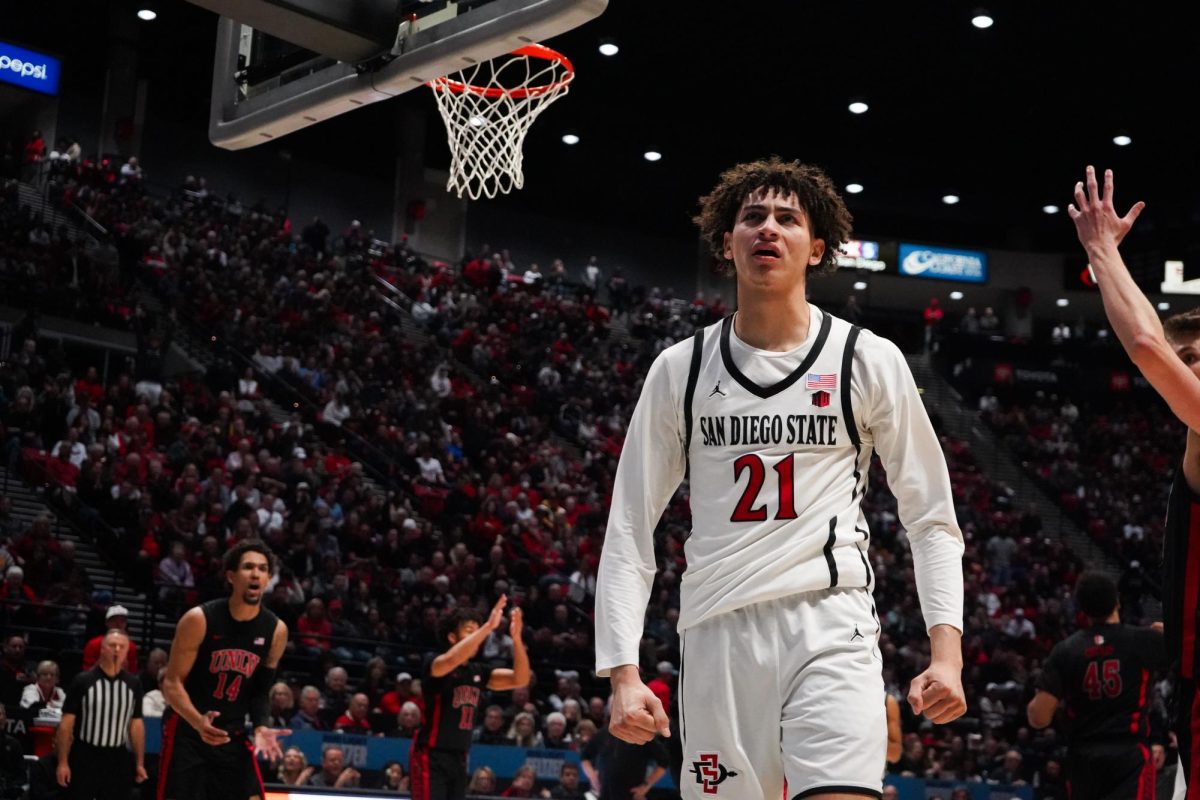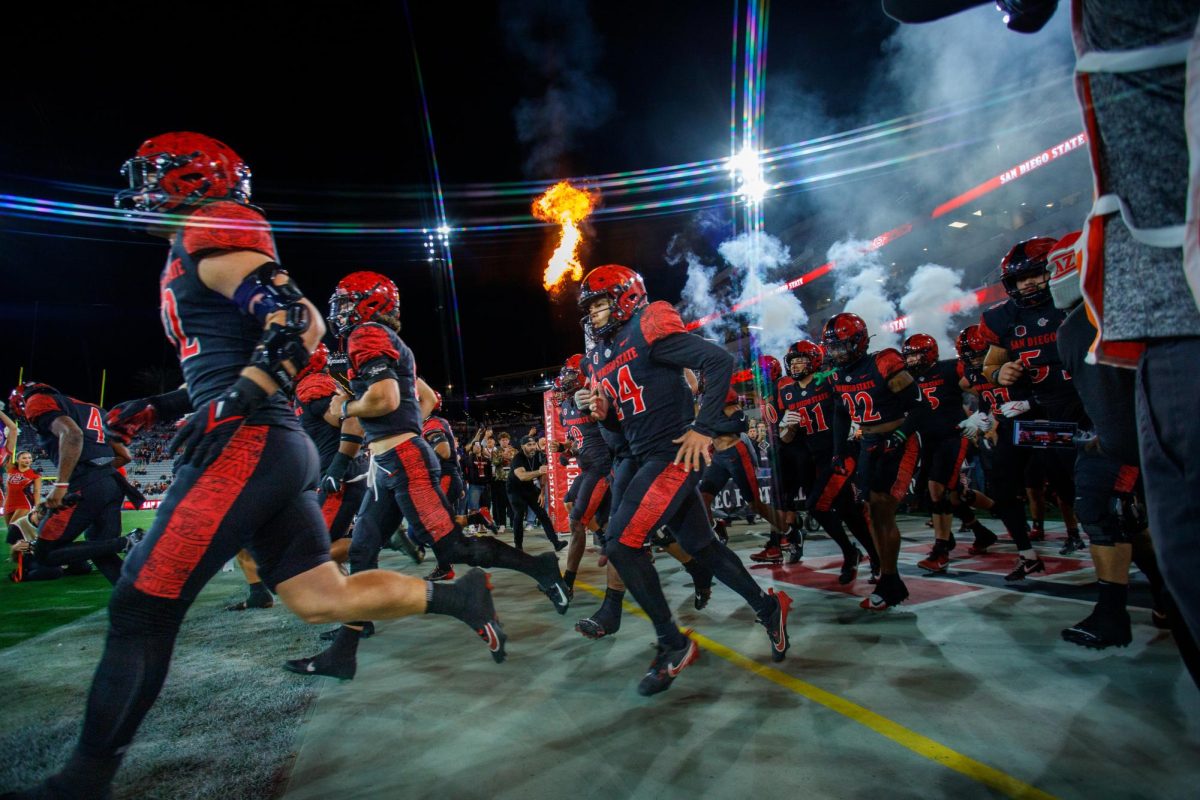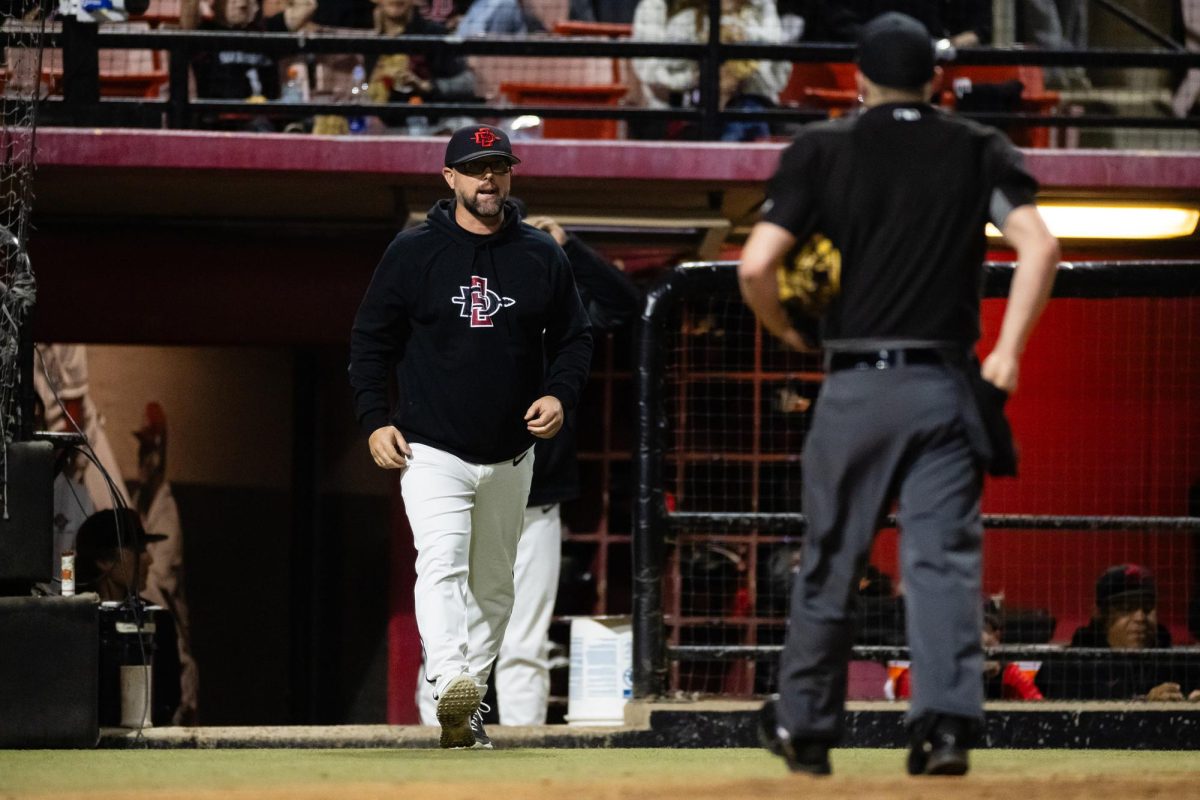Each morning of freshman year began on the water, soon before the sun crept over the ocean’s tide and long before many opened their eyes to see the sunlight. Maddie Scherr, a former member of the San Diego State women’s rowing team, worked her muscles to fatigue as water splashed from every direction.
Right when it seemed as though her efforts were finally starting to pay off, the sun decided to set on her dream instead of the bay around her.
“We’re sorry, we’re going to have to cut the women’s rowing team.”
These were the appalling words of the university’s athletic directors who decided to cut women’s rowing because of gender equity compliance in 2021, Scherr’s first year of college.
Under Title IX, universities are required to add or cut sports teams in order to keep female and male athletes at adequate levels. In the case of SDSU, there were too many female athletes in comparison to the overall undergraduate enrollment, and the school had to cut the female rowing program to create athletic balance.
Scherr was utterly shocked.
“I did not think that was going to happen so I was just in shock and speechless.” Scherr said. “More so, I was just like, ‘Wow, now my next four years here are not at all going to be how I thought they were going to play out. Everything is going to be so different now.’”
The cut not only affected Scherr, but the lives of her family as well.
“I remember walking up the stairs to my parents room, and being like, ‘So they just cut the rowing team,’” she said. “They were so pissed off. Personally, I wasn’t really mad, I was more just sad, and all of my friends were sobbing their eyes out. It was sad to see.”
As someone who had participated in rowing since her first year of high school, this news was extremely hard for Scherr to fathom.
“Rowing had such an impact on me from the beginning,” she said. “It was like my second home. I spent so much time there and got so close with the people, so I wanted to keep doing it in college.”
Scherr explained her short-lived rowing experience as an SDSU athlete was still stored deep in her college memories.
“Coming to San Diego was awesome because I was going out on Mission Bay every morning at 6 a.m.” Scherr said. “I got to watch the sunrise with all of my teammates who also lived in the University Towers dorms with me. So, I got really close to these girls, and I really liked that aspect of it.”
Many of the upperclassmen were affected by the cut as well, as they attempted to reverse the discontinuation of the female rowing team.
“The seniors were trying to protest and fight the athletic directors,” Scherr said. “Then, we tried to get together a club team for the athletes, but that didn’t really end up working out because club teams are just really hard to coordinate and everything. Also, rowing is a really expensive sport, so we would’ve had to raise a lot of money.”
The university did give the team the opportunity to finish out the year but Scherr said many of her teammates lost the motivation to row knowing there was no future for the team.
“A lot of people quit because they were like, ‘We’re not happy that we’re not having a season, like I’m done,’” she said. “And also, rowing’s a really hard sport, like if you’re not super into it, and if it’s not even a thing anymore, you’re out of there.”
Scherr did see the light in the unwinding season though, as she was able to find her true friends in the process.
“We really got to see who stuck with it,” she said. “A lot of people quit, but me and my friends stayed until the very end, and that’s what made us so close. Everyone was like, ‘I don’t want to do this anymore’, and we were like ‘Why? It’s so fun, we get to just mess around and do what we love.’”
When rowing came to an end, Scherr used this opportunity to branch out and further explore SDSU, joining the Gamma Phi Beta sorority.
“I really didn’t know anyone that was not an athlete,” she said. “I was like, ‘Okay, I want more of a social scene for my next year.’ So now it’s great, I really get the best of both worlds. I now live with three GPhis, three of my old rowing teammates and then one girl on the water polo team— so I really got to mix everyone in.”
Another former SDSU rowing athlete, Olivia Petrine, described her lasting relationship with her current roommate, emphasizing how their shared rowing experience truly did bring them closer.
“Maddie was a great teammate to have,” Petrine said. “She was a hard worker, and she ended up racing in the top boat. She was really fast and put in the hours, but she was also really fun and positive to be around. We were there until the end together.”
Even after the unfortunate end to her rowing lifestyle, Scherr still exudes positivity. She chooses to focus on the valuable experiences that the San Diego State athletics department brought to her.
“It was nice in the end, we got to keep our scholarship and our priority registration, and all of the perks we get,” she said. “They’re like ‘Sorry about cutting the team, but you can keep all of that fun stuff.’”
In all, Scherr couldn’t be more thankful for her short-lived experience with the rowing team, and continues to shed light on a situation that many would choose to dwell on.
“I’m so glad I did it because during Covid, if I was doing college without this setup schedule, I would probably not be doing anything” Scherr said. “I would have gotten so lazy. Because of rowing, I started my day every morning at 8 a.m., which was really nice. Like, I had already worked out, I had already showered, I had already eaten and I had this whole day still to go and try to be productive. It was honestly really good for me, and I’m so thankful for that.”







